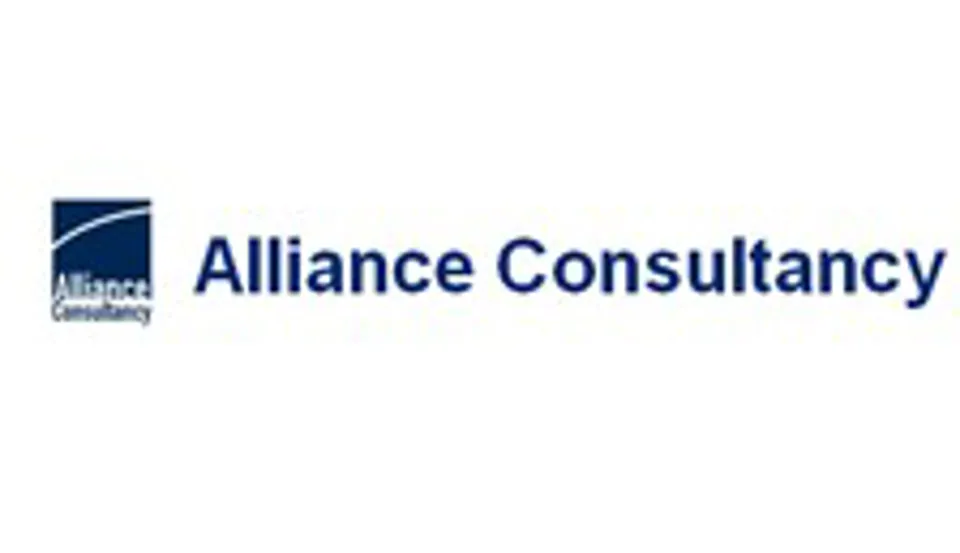Your questions posed to our experts - with Stephanie Murdoch, Alliance Consultancy and Training Solutions.
Q. What was the single most important piece of advice you were able to give dealers in 2009?
I think it was to make sure you have documentary evidence to demonstrate your compliance. The FSA is predominantly a desk-based regulator and can call upon evidence of your compliance at any time. If you can’t produce what that they ask for, they will have concerns and will take the view that ‘if it is not written down it didn’t happen’.
The industry is seeing a flood of spurious complaints over the sale of PPI products from ‘legal’ firms taking advantage of the fact that dealers may not have sufficient documentary evidence in their files to prove the sale was compliant.
Although the sales process is only one element of the regulations you need to ensure is 100% compliant, their actions demonstrate how critical it is to have accurate record keeping as its absence can be costly.
Of equal importance is the understanding that you need to keep up to date with the regulations as they are continually evolving. Over the last and during the next 12 months significant changes are happening. With the recent publication of the joint FSA and OFT action plan, the alignment of regulation over the selling of insurance and point of sale finance is getting even closer.
Visiting the FSA’s website at www.fsa.gov.uk/smallfirms/your_firm_type/motor/index.shtml regularly or using organisations such as ours are the easiest way to achieve this.
----------------------------------------------------------
Q. We’re too small to have dedicated business managers, so how can we ensure sales executives consider F&I seriously?
The lack of a business manager should not affect your sales executives’ attitude to F&I. Poor sales are often the result of a lack of understanding and confidence in the sales process and the products. Lack of effective direction and supervision can also be to blame.
These barriers can be overcome. The FSA’s requirements provide a framework which can help you to achieve this.
To ensure these products are taken seriously you need to:
- provide clear direction on your expectations and who is responsible for meeting these
- accurately monitor and measure performance against expectations
- provide staff with the ability and confidence by ensuring they have sufficient product knowledge
- ensure sales execs demonstrate their confidence and understanding before being let loose on customers
- ensure that their performance is monitored and measured
- continuously and any shortfalls are acted upon immediatelybonuses/rewards should recognise both the quality and not just the quantity of sales made.
Collectively embracing these points will give management greater transparency and control and take away any excuses for sales executives not to take the selling of F&I products seriously.
----------------------------------------------------------
Q. When are the optimal points to raise the finance question during the sales process?
The key to effective sales is understanding and fulfilling your customers needs. Nearly every customer is a potential finance opportunity. Accurate customer qualification is critical. The habit of pre-qualifying the customer before speaking to them is a BIG mistake and not one that any smart sales person should make.
There are a number of optimal times at which to raise funding:
- In the showroom/on the forecourt. The prominent display of finance deals is incredibly important. Highlighting offers available in the initial meet and greet can plant the seed for follow-up discussion.
- At the time of car appraisal. By this point the customer is pretty warm to the idea of changing their car and is the best time to accurately qualify the customer. Establishing how they paid for their last car opens up a natural dialogue.
- At the point of securing the car sale. By now you should have an understanding of their requirements and the customer should have confidence in you so you can confidently demonstrate how the finance options you have to offer may be more appropriate for them.
Remember customers buy from people they trust. Gain their confidence. Demonstrate your knowledge and skills in your product early in the process This will lead to good sales and finance conversions.
----------------------------------------------------------
Q. In these uncertain times what is the safest way to borrow money to buy a new or used car?
One of the safest and easiest ways to get finance is still via a dealer. Acquiring funds through this route provides valuable protection in the finance agreement which are governed by the CCA.
When funds are released by a lender, they are not only calculating any potential risks associated with a consumer with their ability to repay the loan but also adopting a responsible lending approach in relation to an asset, not too dissimilar to a mortgage lender and a house.
If any problems arise, not only does the consumer have the responsibility of addressing/resolving this with the supplying dealer, but the third party, being the finance house, has an obligation to intervene where necessary, to assist in a satisfactory conclusion.
This type of support and safety net is not available if funds are sourced elsewhere in the guise of an unsecured loan.
There is also no dependency on phone calls or posting documentation. In these uncertain times, being able to deal with someone face to face rather than sharing personal/confidential information via phone/internet is an important consideration for a consumer in protecting against identity fraud.
----------------------------------------------------------
Q. What can the Government do to restore financial confidence so people start borrowing money again to, hopefully, buy a new or used car?
It is too early to know whether the Government supported Scrappage Scheme will inject the same level of positive consumer activity and confidence experienced by other EU member states this inititative on its own however will not bring about the level of increase in consumer confidence our industry desperately needs due to the limited audience that can benefit from it.
In the current economic climate many consumers may be being deterred from purchasing cars and entering into financial commitments due to job uncertaintainty. The days of a job for life are well gone! Given the fact that the car is now an integral lifeline for many people rather than a mere luxury item, car financing perhaps should be given the same level of Government protection and support as home mortgages.
Perhaps worthy of debate, to create wider consumer confidence, the Government could consider introducing schemes akin to the Homeowner Support Scheme and the Support for Mortgage Support Scheme. These initiatives provide Government guarantees to lenders against the proportion of any loss incurred on the deferred interest payments in case the borrower defaults.
For consumers it provides them with a valuable safety net to help them in the event of unforeseen job loss/fall in household income which could impact on their ability to make mortgage repayments and helps them remain in their home. These schemes although subject to eligibility criteria provide risk sharing between the Government and lenders and borrowers and provide overall confidence.
In these uncertain times anything that provides potential consumer confidence should not be discounted.
----------------------------------------------------------
Q. Several car manufacturers now consider dealer training as a highly lucrative revenue stream! With daily costs per delegate of £500.00 do you share our thoughts that this is becoming an increasing financial burden on the retail network with one example last week of a dealer paying £40,000 in 2008 yet his business lost overall several hundred thousand?
I cannot comment as to whether dealer training is regarded as a profit stream for some/all car manufacturers or on the value to the dealer you raise by way of example in your question. Clearly manufacturers have a vested interest in ensuring that customers who purchase products under their brand receive a consistent and professional service. Whether they would be open, given the current climate, to reducing their charges for the delivery of their mandatory training is something that you would need to raise with your particular manufacturer/s. I am aware that a number of manufacturers are cutting their dealer charges elsewhere so it is worth a go.
----------------------------------------------------
More from Stephanie Murdoch
Stephanie formed Alliance Consultancy and Training Solutions in 2002 to provide expertise on insurance and financial services regulations.
Alliance is a leading provider of consultancy, training and compliance management software solutions to the motor industry.
Our clients include motor manufacturers and manufacturer finance houses, franchised motor retailers, insurance providers and independent finance houses.
The business employs a nationwide network of qualified and experienced consultants and trainers with a strong understanding of how the general insurance market operates within an automotive environment.
The focus of the business is to provide practical help at an affordable cost. Compliance is complicated.
We help businesses to understand it, explain how it affects them, and how to incorporate it into their business so it makes a positive impact.
Alliance is a highly focused company led by its founder Stephanie Murdoch who has over 25 years of experience working in the insurance industry and regulatory frameworks that it operates within.
Stephanie began her insurance career in 1986 working for Jardine Insurance Brokers (now trading as Jardine Lloyd Thompson) which is one of the largest global insurance and reinsurance broking companies in the world.
Originally joining Jardines on a six month contract to help design a software system to support the launch of a pet insurance programme, she went on to develop this specialist niche business into what today is one of the leading pet insurance providers in the UK.
After demonstrating her skills for developing niche businesses and taking products to market Stephanie was made the Sales and Marketing Director for the general insurance and affinity operations across the UK in 1993.
The business provided a range of personal lines insurance products and branded affinity programmes for professional services groups.
Stephanie further expanded this business into providing branded insurance arrangements for major high street retailers, motor manufacturers, utility companies and sports clubs.
This included ground breaking initiatives such as working with Tesco’s to be become the first supermarket to sell insurance products at the point of sale which created the foundations for their highly successful insurance and financial services business.
In 1997 she was promoted to Managing Director of Jardine Group Services and made a main board director of Jardine Lloyd Thompson.
In 2000 Stephanie left Jardines to enter the world of consultancy. She joined Deloittes as a Director to develop a new service line in their specialist insurance division working with new market entrants.
Her role was to work with major brands who wanted to offer insurance and financial services to their customers.
To help in the design, build and management of these insurance and financial services arrangements on their behalf.
Her work also included providing consultancy advice to insurance and financial services institutions who distribute their products through these brand affinity channels.
With this extensive background in insurance and selling products through retail brands and of working within regulatory frameworks when the decision was made by the EU to bring general insurance under regulation Stephanie recognised this as an opportunity to break away from major corporate life and set up her own business.
Her desire was to offer ‘real’ market expertise and skills to businesses at a much more affordable price.
Since 2002 the business has expanded significantly to support the range of services and business growth.
Today Stephanie is a leading speaker on FSA compliance to the motor retail sector and writes for a number of specialist retail publications and brings this expertise to the AM specialist panel.














Login to comment
Comments
No comments have been made yet.